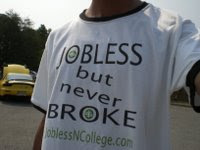
Next year, this country will have new leadership. The presidential elections are right around the corner and the choice you make this November can greatly impact your financial aid future and the accessibility of higher education for those who come behind you.
According to the U.S. Public Interest Research Group (
USPIRG), Congress passed the College Cost Reduction and Access Act last year which lowered interest rates on subsidized Federal Stafford loans from 6.8% to 6.0% as of July 1st, 2008. A study by USPIRG estimates that this move will save the average four-year college student starting school in 2008 with subsidized Stafford loans about $2,570 over the life of his or her loans.
This Act had many other benefits for college students, most of which are well summarized
here.
Democratic nominee, Barack Obama,
was a part of the Conference Committee that helped push this bill through. In fact, the first bill he introduced as a Senator was aimed at making college more affordable.
Interestingly, Republican nominee, John McCain
voted against the College Cost Reduction and Access Act and has in the past opposed other such legislative efforts that support public and higher education.
This is not a political blog so we're not telling you who to vote for. Just be aware that Congress and the President have the power to enact legislation that impact federal financial aid policies which in turn can either help us or hurt us when it's time to repay student loans. The outcome of this election will directly affect what legislation will succeed in the next four years since ultimately, the president must approve it.







